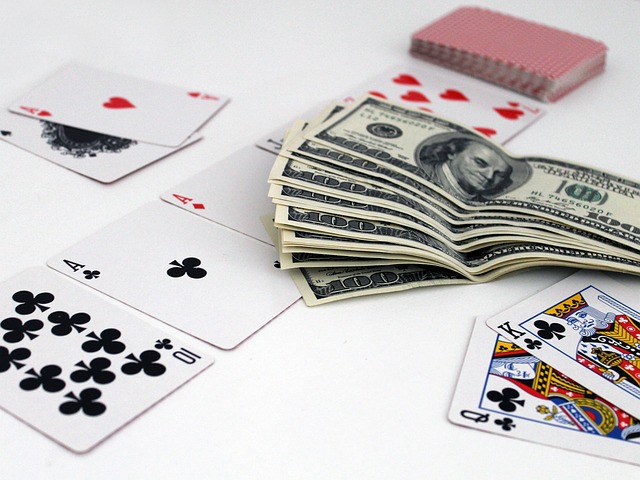Have you ever wondered what sets apart the casual casino player from the seasoned pro? It’s all about strategy. Whether you’re a fan of poker, blackjack, or roulette, having a solid game plan can significantly enhance your chances of winning. And with platforms like Mostbet offering a variety of games, there’s never been a better time to up your game. So, let’s dive into the world of casino strategies and uncover the secrets to becoming a master of the tables.
Understanding the House Edge
Before we delve into specific strategies, it’s crucial to understand the concept of the house edge. Simply put, the house edge is the mathematical advantage that the casino has over the player in any given game. It’s what ensures the casino makes a profit in the long run. But don’t let that discourage you. Knowing the house edge can help you make smarter decisions and choose games that offer better odds.
For instance, games like blackjack and video poker typically have a lower house edge compared to slots or roulette. This means that, over time, you have a better chance of winning at blackjack than at slots. But remember, the house edge is just one piece of the puzzle. Your strategy and skill level also play a significant role in your success.
Blackjack Strategies: Playing the Odds
Blackjack is one of the most popular casino games, and for good reason. It offers a unique blend of skill and luck, making it both exciting and strategically challenging. The goal is simple: get a hand total that’s closer to 21 than the dealer’s, without going over. But how do you maximize your chances of winning?
Basic Blackjack Strategy
The basic blackjack strategy is a mathematically proven way to play each hand based on your cards and the dealer’s upcard. It’s a simple chart that tells you whether to hit, stand, double down, or split. Here’s a simplified version:
| Your Hand | Dealer’s Upcard | Action |
|---|---|---|
| Hard 12-16 | 2-6 | Stand |
| Hard 12-16 | 7-Ace | Hit |
| Soft 13-18 | Any | Hit |
| Pair of Aces or 8s | Any | Split |
Of course, this is just a starting point. The full basic strategy chart is more comprehensive and takes into account all possible scenarios. But even this simplified version can significantly improve your game.
Card Counting: Myths and Realities
You’ve probably heard of card counting, the technique made famous by movies like “21.” But is it really a viable strategy? The short answer is yes, but it’s not as easy as it looks in the movies. Card counting involves keeping track of the ratio of high cards to low cards remaining in the deck. When the count is high, the player has an advantage and should bet more. When the count is low, the house has the edge.
However, card counting requires a lot of practice and concentration. Plus, casinos are well aware of this strategy and have measures in place to deter it, such as using multiple decks and shuffling frequently. But if you’re up for the challenge, card counting can be a powerful tool in your blackjack arsenal.
Roulette Strategies: Spinning Your Way to Success
Roulette is a game of pure chance, right? Well, not entirely. While the outcome of each spin is random, there are strategies you can use to manage your bets and maximize your winnings. Let’s take a look at some of the most popular roulette strategies.
The Martingale Strategy
The Martingale strategy is one of the oldest and most well-known roulette strategies. The idea is simple: double your bet after every loss. The theory is that you’ll eventually win and recoup all your losses, plus a small profit. Here’s how it works:
- Start with a small bet on an even-money outcome, like red or black.
- If you lose, double your bet.
- Keep doubling your bet until you win.
Sounds foolproof, right? Not quite. The Martingale strategy can be risky, especially if you hit a long losing streak. Plus, most tables have maximum bet limits, which can prevent you from doubling your bet indefinitely. But if you’re looking for a simple and straightforward strategy, the Martingale might be worth a try.
The Fibonacci Strategy
The Fibonacci strategy is based on the famous Fibonacci sequence, where each number is the sum of the two preceding ones (e.g., 1, 1, 2, 3, 5, 8, etc.). Here’s how to apply it to roulette:
- Start with a small bet on an even-money outcome.
- If you lose, move to the next number in the sequence and bet that amount.
- If you win, move back two numbers in the sequence and bet that amount.
The Fibonacci strategy is less aggressive than the Martingale, making it a good option for players who want to manage their bankroll more conservatively. However, like all roulette strategies, it’s not foolproof and doesn’t guarantee a win.
Poker Strategies: The Art of Bluffing
Poker is a game of skill, strategy, and a bit of luck. Whether you’re playing Texas Hold’em, Omaha, or Seven-Card Stud, having a solid poker strategy can give you a significant edge over your opponents. Let’s dive into some essential poker strategies.
Tight-Aggressive Play
Tight-aggressive play is a poker strategy that involves playing a small number of hands but betting and raising aggressively when you do play. The idea is to put pressure on your opponents and force them to make mistakes. Here are some tips for playing tight-aggressive:
- Only play strong starting hands.
- Bet and raise frequently to build the pot when you have a strong hand.
- Bluff occasionally to keep your opponents guessing.
Tight-aggressive play can be very effective, but it requires discipline and patience. You’ll need to fold a lot of hands and wait for the right opportunities to strike.
Reading Your Opponents
One of the most critical skills in poker is the ability to read your opponents. This involves paying attention to their betting patterns, body language, and other tells. Here are some tips for reading your opponents:
- Watch how your opponents bet. Do they bet aggressively with strong hands or bluff frequently?
- Pay attention to their body language. Do they fidget or look nervous when bluffing?
- Keep track of their playing style. Are they tight or loose? Passive or aggressive?
Reading your opponents takes practice, but it can give you a significant edge in the game. The more information you have about your opponents, the better you can adjust your strategy to exploit their weaknesses.
Bankroll Management: The Key to Long-Term Success
No matter what game you’re playing, bankroll management is crucial to long-term success. Your bankroll is the amount of money you have set aside for gambling, and managing it effectively can help you avoid going bust and maximize your winnings. Here are some tips for managing your bankroll:
- Set a budget for each gaming session and stick to it.
- Never chase your losses. If you’re on a losing streak, take a break and come back another day.
- Bet a small percentage of your bankroll on each hand or spin. A good rule of thumb is to bet no more than 1-2% of your bankroll at a time.
Bankroll management is all about discipline and self-control. It’s easy to get caught up in the excitement of the game and bet more than you can afford to lose. But by managing your bankroll effectively, you can ensure that you’ll always have money to play with and increase your chances of winning in the long run.
FAQs: Answering Your Burning Questions
Q: Can I really beat the casino using these strategies?
A: While these strategies can significantly improve your chances of winning, it’s important to remember that the house always has an edge. The key is to minimize that edge and maximize your winnings when you do win. With practice and discipline, you can become a skilled and successful casino player.
Q: Is card counting illegal?
A: Card counting is not illegal, but casinos frown upon it and may ask you to leave if they suspect you’re doing it. It’s essential to be discreet and follow the casino’s rules and regulations.
Q: What’s the best game to play at the casino?
A: The best game to play depends on your personal preferences and skill level. Games like blackjack and poker offer a good blend of skill and luck, while games like roulette and slots are more about chance. Ultimately, the best game is the one you enjoy playing the most.
Q: How much money should I bring to the casino?
A: The amount of money you bring to the casino depends on your budget and how long you plan to play. A good rule of thumb is to bring enough money to cover your buy-ins and bets for the duration of your gaming session. Remember to set a budget and stick to it to avoid overspending.
Conclusion: Becoming a Casino Master
Becoming a master of casino games takes time, practice, and a solid understanding of strategy. Whether you’re a fan of blackjack, roulette, poker, or any other game, having a game plan can significantly improve your chances of winning. So, the next time you hit the tables, remember these strategies and play like a pro. Who knows? You might just walk away with a big win.

